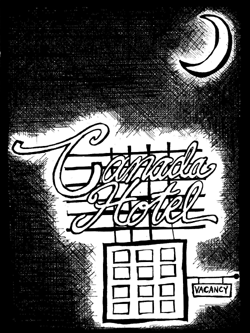DominionSections
Browse Articles
- IndependentMedia.ca
- MostlyWater.org
- Seven Oaks
- BASICS Newsletter
- Siafu
- Briarpatch Magazine
- The Leveller
- Groundwire
- Redwire Magazine
- Canadian Dimension
- CKDU News Collective
- Common Ground
- Shunpiking Magazine
- The Real News
- Our Times
- À babord !
- Blackfly Magazine
- Guerilla News Network
- The Other Side
- The Sunday Independent
- Vive le Canada
- Elements
- ACTivist Magazine
- The Tyee
- TML Daily
- New Socialist
- Relay (Socialist Project)
- Socialist Worker
- Socialist Action
- Rabble.ca
- Straight Goods
- Alternatives Journal
- This Magazine
- Dialogue Magazine
- Orato
- Rebel Youth
- NB Media Co-op
Radio
Writing Canada
May 17, 2003
Writing Canada
In a letter to the Irish critic and writer James Stern dated February 22, 1970, Australian novelist Patrick White (1912-1990) wrote the following astonishing pair of sentences:
"How lucky the Irish are, and the American Jews, in having those rich tormented backgrounds to draw on; here we are, the bloody Australians, with nothing, having to conjure rabbits out of the air. As a writer I'd like to have been almost anything rather than an Australian -- even a New Zealander or a South African (I must say being a Canadian wouldn't have much to offer)."

illustration by John Haney
If White's casual envy of those with 'rich tormented backgrounds' negates the cost of human suffering, nevertheless, one understands his frustration; it is a frustration shared by many artists of diverse ancestry native to one of the so-called settler colonies. Expatriate literature written in Canada accounts for some of the country's best writing. The native artist, however, by which I mean any artist born in Canada, faces a certain predicament. Where to turn for texture and material, under the burden of rootlessness? That burden, as burdens go, is enviable from the perspective of, say, a persecuted Muslim from Gujarat; but there is a cultural price to pay for our comfort. Pico Iyer, whose enthusiasm for our country is intriguing, has likened Canada, in particular Toronto, to a hotel, and of course it is a fact to be celebrated that this country is a hotel, a haven, a harbour where people of every description, from here and elsewhere, can pursue their lives and work in relative peace. But there is a point at which you cannot live in a hotel. You need a home.
Wherever he goes, the novelist Raja Rao (who has lived in France and America and who, interestingly, sometimes writes in an Indian language called Kannada), knows that he is a Brahmin Indian. India is at least as fragmented and 'multicultural' as Canada, yet it is possible for someone like Rao to assert a conviction of identity to which most Canadians, of whatever ancestry, would not be able to relate. The experience of imperial hegemony, after all, has been very different in Canada than in India, or indeed anywhere in Southeast Asia or Africa or the Caribbean. At the time of independence, what sort of national identity could we have proclaimed? The people who had built up traditions and mythologies on this continent had been all but exterminated. In truth, there is a rich and tormented background to this country. Just ask the Ahnishinahbaeotjibway.
Whatever one makes of these problems, Rao's case is instructive, for he reminds us, in an interview with Feroza Jussawalla and Reed Way Dasenbrock, that a writer's first duty is not to cultural markers or even to communication but to experience and to language. Whether she finds a language true to her, and by extension our, experience through expressive realism or something more experimental, a Canadian writer must struggle with these questions of identity, while keeping language as one of her central preoccupations. In whatever direction our writers choose to go, one recalls with a glad heart that as an Australian with a deep ambivalence toward his country, a country so much like Canada, Patrick White managed to create some of the twentieth century's greatest fiction.
Related articles:
By the same author:
Archived Site
The Dominion is a monthly paper published by an incipient network of independent journalists in Canada. It aims to provide accurate, critical coverage that is accountable to its readers and the subjects it tackles. Taking its name from Canada's official status as both a colony and a colonial force, the Dominion examines politics, culture and daily life with a view to understanding the exercise of power.